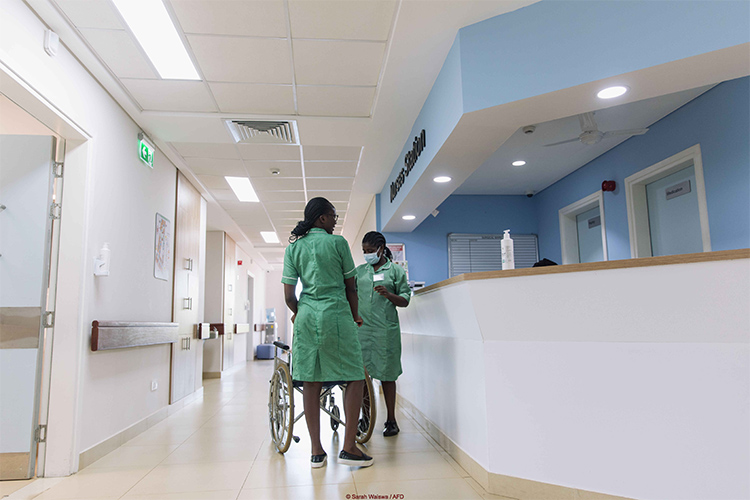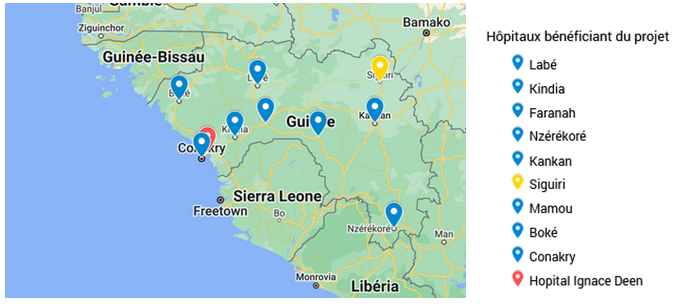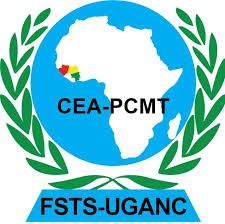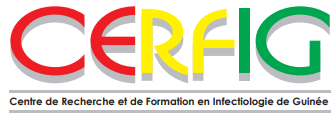Renforcement des urgences hospitalières en Guinée

Objectif
-
5 M€BUDGET
-
01/01/2024DEBUT DU PROJET
-
48 moisDUREE
Le renforcement des urgences hospitalières, une priorité nationale en Guinée
Les dysfonctionnements des urgences hospitalières guinéennes sont multiples : manque de ressources humaines, faiblesse de la formation et de la maîtrise des protocoles de prise en charge, indisponibilité des traitements ou des équipements biomédicaux, mauvaise organisation des soins… Ils conduisent à des retards de diagnostic, à une mauvaise prise en charge des pathologies et à des décès évitables.
Afin de restaurer la confiance de la population envers le système de santé, le ministère de la Santé et de l’Hygiène publique de Guinée a fait de la réorganisation des urgences hospitalières, premier point de contact des patients avec les prestataires de soins, une priorité, comme indiqué dans la feuille de route fixée par les autorités en 2022.Les urgences pré-, per- et post-hospitalières, levier de la lutte contre les trois pandémies
Les pandémies de VIH/sida, de tuberculose et de paludisme continuent de représenter un fardeau significatif pour les populations guinéennes, une réalité tangible au sein des urgences hospitalières qui sont confrontées aux complications liées à ces trois maladies et reçoivent des patients atteints de VIH et de tuberculose présentant des maladies chroniques (diabète, hypertension…).
• Le paludisme est la première cause de mortalité des enfants de moins de cinq ans et représente 45 % des hospitalisations dans les formations sanitaires publiques. En 2022, le paludisme constituait la première cause de morbidité hospitalière.
• Les patients atteints de tuberculose peuvent rencontrer des complications nécessitant une admission aux urgences, notamment dans les cas de pleurésies abondantes avec détresse respiratoire.
• Malgré une augmentation rapide du nombre de personnes vivant avec le VIH sous traitement antirétroviral, l’épidémie de VIH/sida est généralisée et représente 9 % des consultations médicales. Les admissions aux urgences pour cause de complications liées au VIH/sida ont trait à des infections opportunistes (tuberculose, toxoplasmose, candidoses, pneumocystose…) et à des insuffisances hépatiques, mal connues du personnel soignant des urgences.Un projet d’envergure nationale pour améliorer la prise en charge des urgences liées aux trois pandémies
La thématique des urgences hospitalières en Guinée a mobilisé Expertise France entre 2018 et 2022, au cours d’un projet pilote financé par le gouvernement français. Mis en œuvre dans les régions de Kankan, Labé et Conakry, ce projet pilote visait à renforcer les urgences pré, per et post-hospitalières. Un des acquis majeurs a été le développement d’une stratégie nationale sur les urgences hospitalières et son schéma directeur, publiés en mars 2022.
Dans la continuité de ces actions, le projet « Urgences hospitalières » financé dans le cadre de L’Initiative, s’inscrit ainsi dans une volonté de passage à l’échelle. Son ambition est d’améliorer la prise en charge des urgences liées au paludisme, à la tuberculose et au VIH/sida au sein des urgences de 10 sites : l’hôpital national d’Ignace Deen, les 8 hôpitaux régionaux (Boké, Conakry, Faranah, Kankan, Kindia, Labé, Mamou, Nzérékoré) et l’hôpital préfectoral de Siguiri.

Le projet s’articulera avec d’autres initiatives en cours, dont l’achat d’une trentaine d’ambulances, la construction et l’équipement d’un centre national de régulation des urgences, ou encore la construction de quatre centres hospitalo-universitaires, à Kankan, Kindia, Labé et Nzérékoré.
Une stratégie d’intervention basée sur le renforcement des capacités pré-, per- et post-hospitalières, et sur la recherche-action
Le présent projet s’articule autour de trois objectifs spécifiques.
1. Améliorer la qualité de la prise en charge des urgences vitales liées aux trois pandémies :
• Les ressources humaines en santé seront durablement renforcées autour de la prise en charge des urgences vitales, y compris pour les cas liés aux trois pandémies, selon une approche sensible au genre.
• Les conditions d’accueil des services d'urgences hospitalières seront améliorées via la réhabilitation des services, et la dotation en équipements et intrants nécessaires à la prise en charge de qualité des urgences vitales liées aux trois pandémies, selon une approche sensible au genre.
2. Favoriser la prise en charge précoce et le suivi post-urgences des cas d'urgences vitales liées aux trois pandémies
• Le référencement des cas d'urgences vitales liées aux trois pandémies sera amélioré par le renforcement de capacités des acteurs communautaires.
• Les liens entre hôpitaux et acteurs communautaires seront consolidés, notamment pour les cas de VIH et de tuberculose multi-résistante.
3. Contribuer à la prise de mesures correctrices en faveur d'une prise en charge de qualité des urgences vitales liées aux trois pandémies
Des données scientifiques sexo-spécifiques sur la place des urgences dans les itinéraires thérapeutiques seront mises à disposition des acteurs techniques et politiques hospitaliers, à travers la réalisation d'études. Cela leur permettra ainsi d’améliorer leurs connaissances sur la place des urgences dans les itinéraires thérapeutiques.
Le projet prendra en compte les besoins spécifiques des femmes et des hommes, aux niveaux pratique et stratégique. La dimension genre sera intégrée de manière transversale à l’ensemble du dispositif de gestion de projet (contractuel, RH, suivi-évaluation, pilotage) et dans le cadre des activités mises en œuvre (bénéficiaires, modalités et contenu des formations, partenariats).





